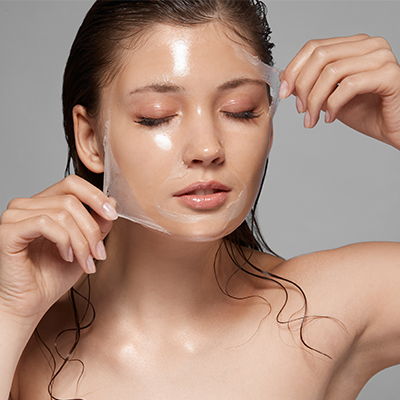Chemical peels have become a popular skincare treatment for improving skin texture, reducing pigmentation, and addressing signs of aging. Many people seek professional advice on how frequently they should undergo this procedure to achieve the best results without causing damage. If you are considering this treatment, it is essential to understand the factors that influence the ideal frequency of chemical peels. For those in Pakistan’s capital, professional options like chemical peels in Islamabad provide expert guidance tailored to individual skin needs.
Understanding Chemical Peels and Their Purpose
A chemical peel involves applying a solution containing acids such as glycolic acid, salicylic acid, lactic acid, or trichloroacetic acid (TCA) to exfoliate the skin’s outer layer. This controlled exfoliation encourages the regeneration of new, healthier skin, revealing a smoother, brighter complexion. Chemical peels can target a variety of concerns, including acne scars, uneven skin tone, fine lines, and sun damage.
The depth of the peel—superficial, medium, or deep—determines how intense the exfoliation is and how long the recovery period will last. Because chemical peels actively remove layers of skin, the frequency at which you can safely repeat the treatment depends on several factors including peel type, skin sensitivity, and your skin goals.
Factors Influencing How Often You Should Get a Chemical Peel
-
Type of Chemical Peel
-
Superficial Peels: These peels exfoliate only the outermost layer of the skin (epidermis). They often contain mild acids like alpha-hydroxy acids (AHAs) or beta-hydroxy acids (BHAs). Superficial peels have minimal downtime and can be repeated more frequently, typically every 2 to 4 weeks.
-
Medium Peels: These penetrate deeper into the skin and often use TCA or stronger acid concentrations. They require longer healing times—usually about one to two weeks—and are generally recommended every 3 to 6 months.
-
Deep Peels: These use strong agents like phenol and penetrate into the lower layers of the skin (dermis). Deep peels provide dramatic results but require extended recovery and are usually done only once every several years or as advised by a dermatologist.
-
-
Skin Type and Sensitivity
Individuals with sensitive skin or certain skin conditions such as eczema or rosacea should approach chemical peels cautiously. Sensitive skin may require longer intervals between peels to prevent irritation or adverse reactions.
-
Skin Concerns and Goals
Your treatment frequency depends largely on what you want to achieve:
-
For acne and mild discoloration, superficial peels every few weeks may be sufficient.
-
For treating deeper pigmentation, scarring, or signs of aging, medium peels spaced several months apart might be more effective.
-
Deep peels are usually reserved for more severe skin concerns and are done sparingly.
-
-
Lifestyle and Aftercare
Proper sun protection and skincare post-peel are critical. If your skin is not adequately protected or cared for, frequent peeling could lead to irritation or damage. Maintaining a healthy skincare routine may also extend the interval between treatments by enhancing the peel’s results.
Recommended Chemical Peel Frequencies for Different Needs
-
Routine Skin Maintenance: For general exfoliation and maintaining a radiant complexion, superficial chemical peels can be performed every 3 to 4 weeks. This frequency allows the skin to regenerate fully while preventing over-exfoliation.
-
Acne Treatment: For active acne or mild scarring, a series of superficial peels every 2 to 4 weeks can help reduce breakouts and clear pores.
-
Hyperpigmentation and Sun Damage: Medium-depth peels performed every 3 to 6 months help reduce dark spots and improve skin tone. It is important to allow sufficient healing time between sessions.
-
Anti-Aging and Wrinkles: Medium peels every 3 to 6 months can stimulate collagen production and reduce fine lines. Deep peels may be considered for more pronounced wrinkles but only on a case-by-case basis with a dermatologist.
Signs You May Need to Adjust Your Chemical Peel Frequency
-
Persistent Redness or Irritation: If your skin remains red or irritated longer than expected, it may indicate that you need to increase the interval between peels.
-
Lack of Improvement: If you don’t see improvement after several treatments, your peel frequency or peel type might need adjustment.
-
Skin Sensitivity Changes: If your skin becomes more sensitive over time, it is advisable to space out treatments or opt for gentler peel options.
Professional Guidance is Key
Because the ideal chemical peel frequency varies widely depending on individual skin characteristics and treatment goals, consulting with a skincare professional is crucial. A dermatologist or licensed skincare expert can assess your skin condition, recommend the appropriate peel type, and design a treatment schedule that maximizes benefits while minimizing risks.
The Role of SKN Cosmetics Clinic in Safe Chemical Peel Treatments
For those seeking expert advice and safe chemical peel treatments, SKN Cosmetics clinic offers specialized care and personalized treatment plans. Their skilled team ensures that each chemical peel session is tailored to your skin type and concerns, optimizing results and maintaining skin health.
Whether you are considering your first chemical peel or planning a maintenance routine, SKN Cosmetics clinic is a trusted destination for chemical peels in Islamabad. Their professional approach combines advanced techniques with patient education, helping you understand the best frequency and type of peel for your skin.
Conclusion
Determining how often you should get a chemical peel depends on multiple factors including the type of peel, your skin type, treatment goals, and how well you care for your skin post-procedure. Superficial peels may be done every few weeks, while medium and deep peels require longer intervals to allow proper healing.
Professional consultation is essential to tailor the frequency and type of peel to your unique needs. For safe and effective chemical peels, the SKN Cosmetics clinic in Islamabad provides expert services, ensuring that your skin receives the best possible care with the latest advancements in skincare technology.
By choosing professional treatments and adhering to recommended frequencies, you can achieve healthier, more radiant skin while minimizing risks associated with overuse.


